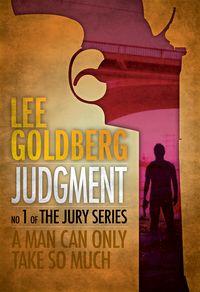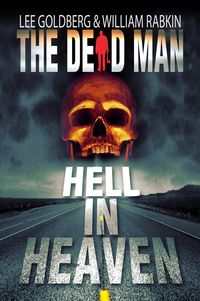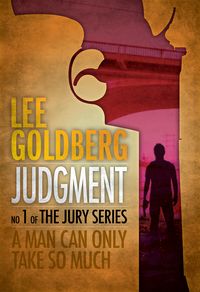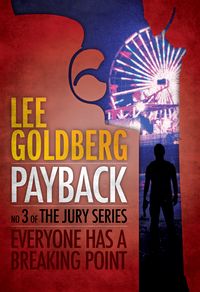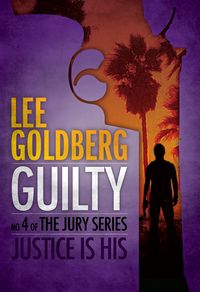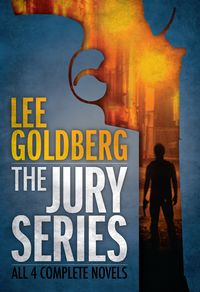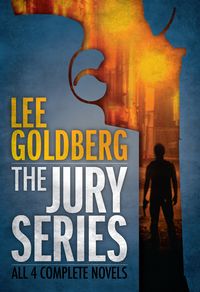There' s been a lot of talk lately about my friend Barry Eisler's decision this week, a month after rejecting a $500,00o offer from St. Martin's in favor of self-publishing his work, to bring out his new RAIN novel through Amazon's just-announced publishing imprint Thomas & Mercer.
Some have said that this means that he's returned to the "legacy publishing" world, simply opting for a different publisher than the one he had before. Some have even said his talk about self-publishing his work was just a negotiating ploy and a bid for media attention.
Of course, most of the people who've made those idiotic comments are so called "indie" authors who know little, if anything, about the nature of "legacy publishing" deals, and who see self-pubishing more as a cause,a religion, or a movement than a business. Take this comment from an "indie" for example:
"guys like Eisler already made their names the traditional route, then came into indie publishing not because they believed in the format, but to position themselves for future leverage. They go on and on about how much better they have it self-publishing and get everyone drinking the Kool Aid, and then leverage their indie cred for a publishing contract. […] They were trad authors who already had established followings and had the marketing savvy to use that to build credibility they didn't deserve as indies. Because they were never indie in the true sense."
So Barry explained his thinking on their home turf: a posting on the Kindleboards today. He said, in part:
I've said many times is that "publishing is a business for me, not an ideology" (Google it, you'll see) and that the right deal could certainly lure me back to the legacy world. That remains true. What's more important, though, is the nature of what could conceivably lure me back. And what could lure me back is precisely what I've never been able to get from any legacy publisher — not the two who have published me; none that I've negotiated with, either. Specifically:
1) A *much* more equitable digital royalty split.
2) Full creative control (packaging, pricing, timing).
3) Immediate digital release, followed by paper release when the paper is ready (no more slaving the digital release to the paper release).As it happens, all these terms are available to a self-published author, so I decided to self-publish. What some people might be missing in that simple statement, though, is that it's the *terms* that are important to me, not the means by which I achieve them. If these terms are a destination, self-publishing is undeniably an excellent vehicle for getting there. But it isn't the only vehicle. And if another vehicle comes along that offers all these terms, plus a substantial advance, plus a retail wing that can reach millions of customers in my demographic… then, as a non-ideological businessman, I'm going to change rides.
[…]For a single title that doesn't incumber my ability to self-publish or otherwise publish anything I want, Amazon offered me all three of the items I list above (except for pricing, but regardless of what the contract says, we agree that digital books should be priced far lower than legacy prices), plus a massive, uniquely Amazon marketing push to its retail operation and otherwise, plus an advance comparable to what SMP had offered me (note, though, that the Amazon deal is for one book; the SMP advance was predicated on two books. When I say "comparable," I mean on a per-book basis, and sorry if I wasn't clear about that in my announcement at BEA). In exchange, I've given up certain digital retail channels because the Amazon deal is exclusive to Kindle platform devices. And Amazon will sell paper versions through its retail stores and through wholesale channels to other retailers. If any of this sounds like a legacy deal to anyone here, you've been talking to legacy publishers I've never heard of.
Although Amazon will be publishing his RAIN book, and more sooner and under much more favorable royalty terms for him than St. Martins Press offered, he still intends to self-publish his other work.
What his deal illustrates, as does the mulitple platform Joe Konrath publishes on ("legacy publishing," self-publishing, Amazon Encore, Thomas & Mercer), is that authors have more options now than we've ever had before…and that self-publishing is now, for the first time, actually a viable and realistic choice.
"And it's a great one," Barry says, adding "but as new possibilities emerge, I'll consider them, try them, and perhaps integrate them into my overall strategy. Why would anyone do anything else?"
That doesn't make him a hypocrite or a liar, as some inexplicably outraged "indie" authors have suggested, but rather a shrewd businessman trying to do what's best for his career.

